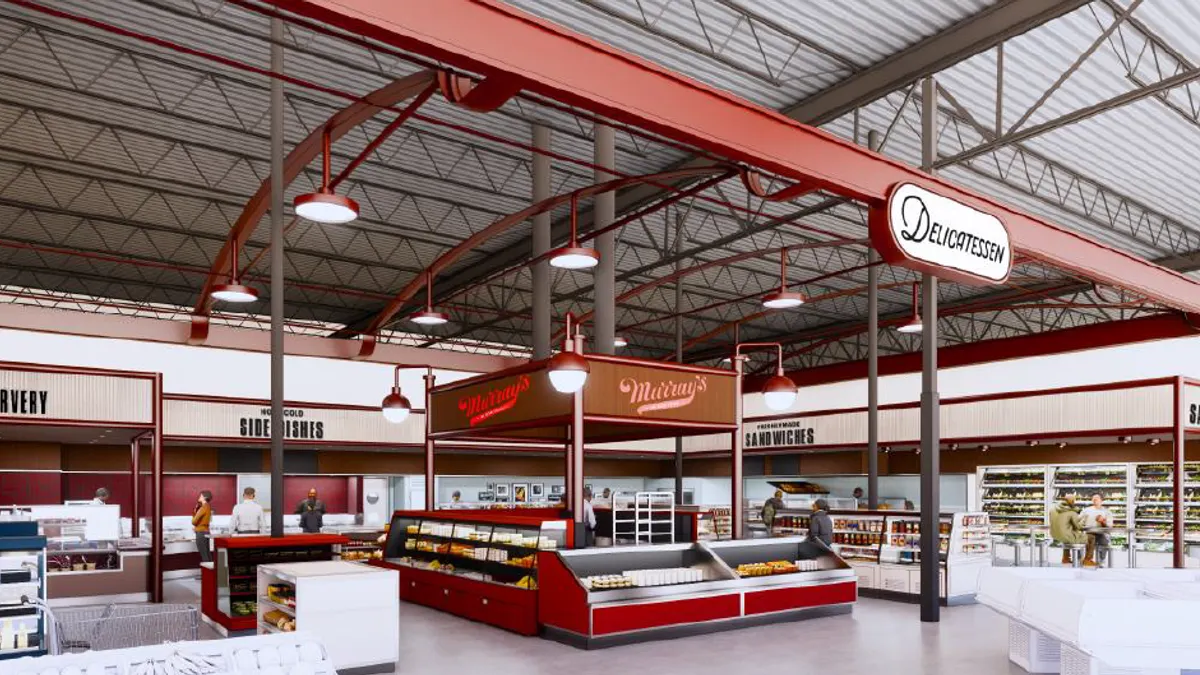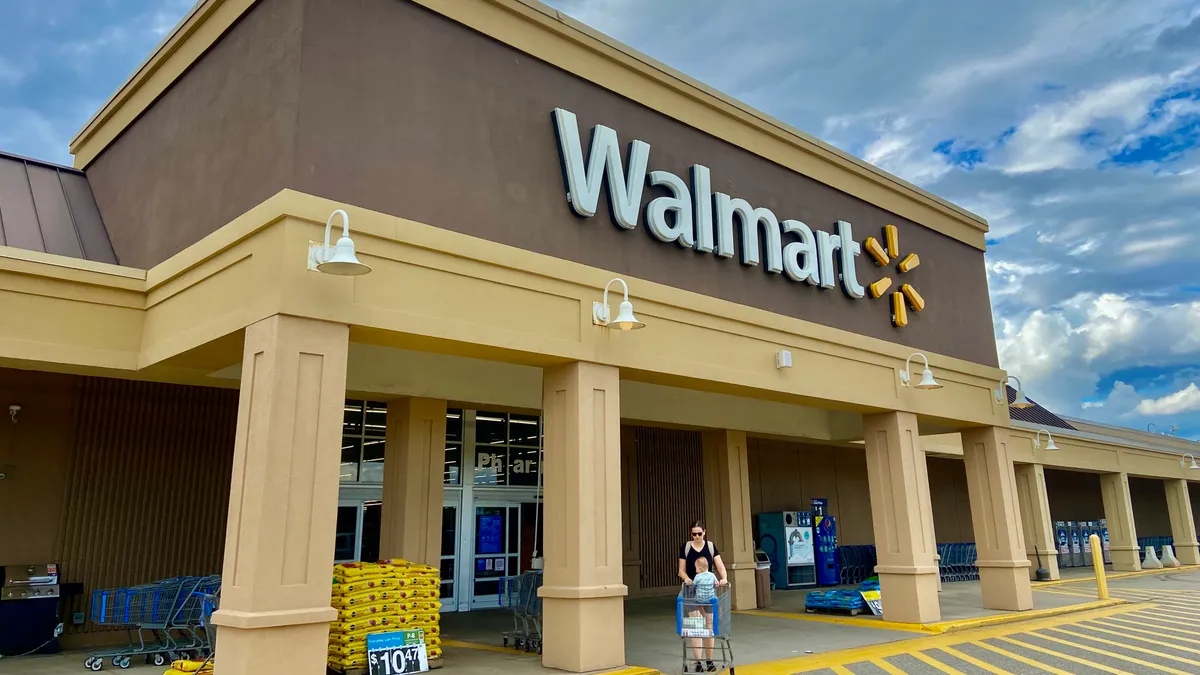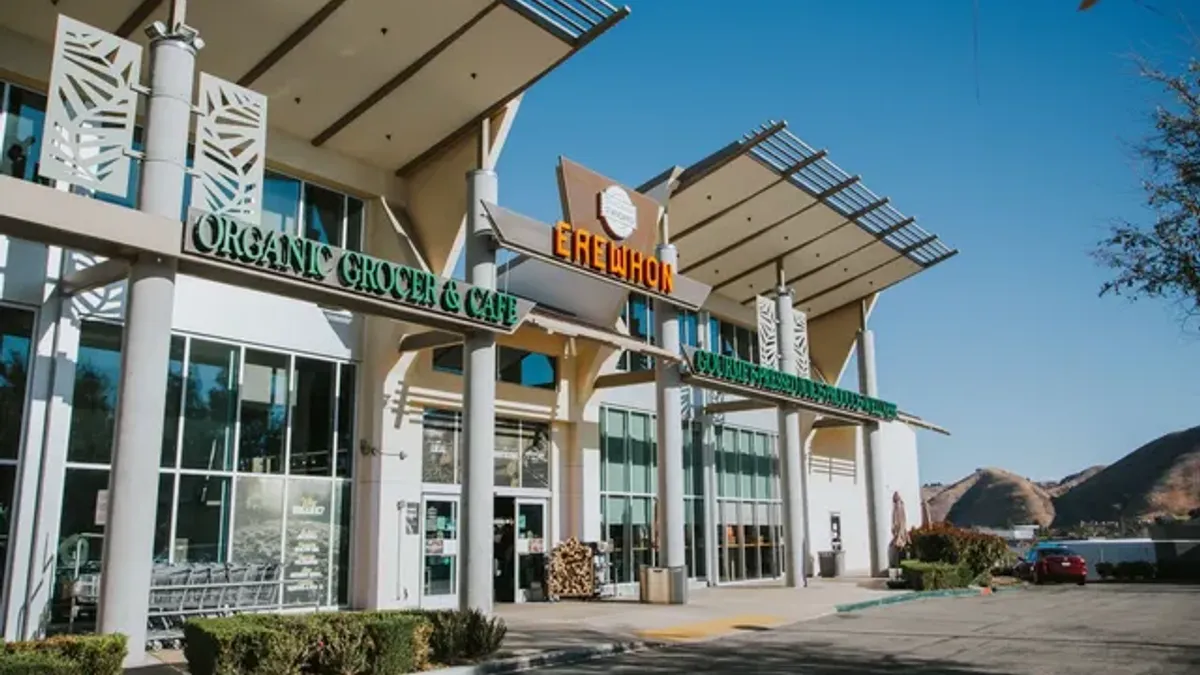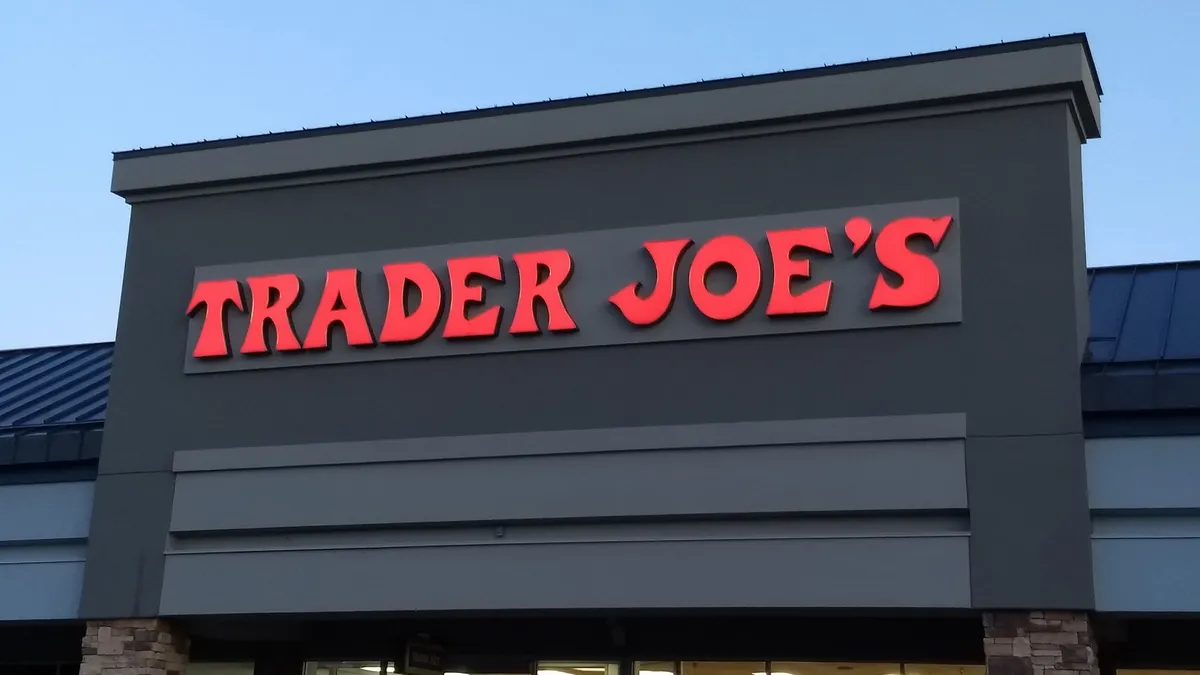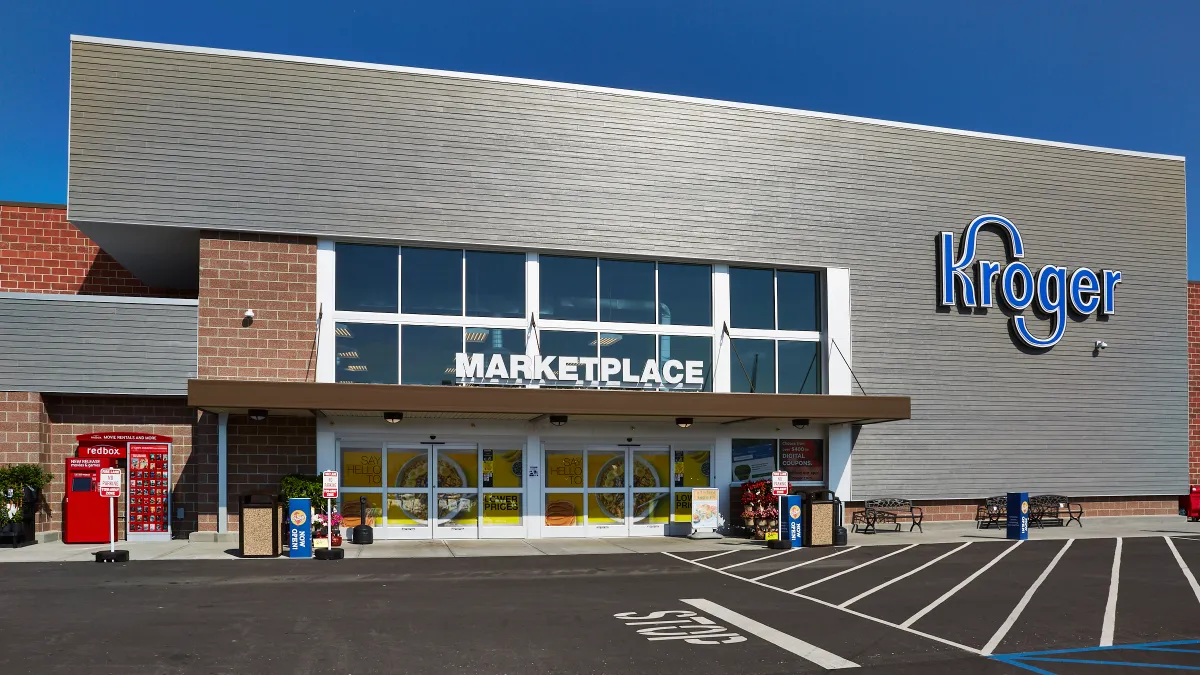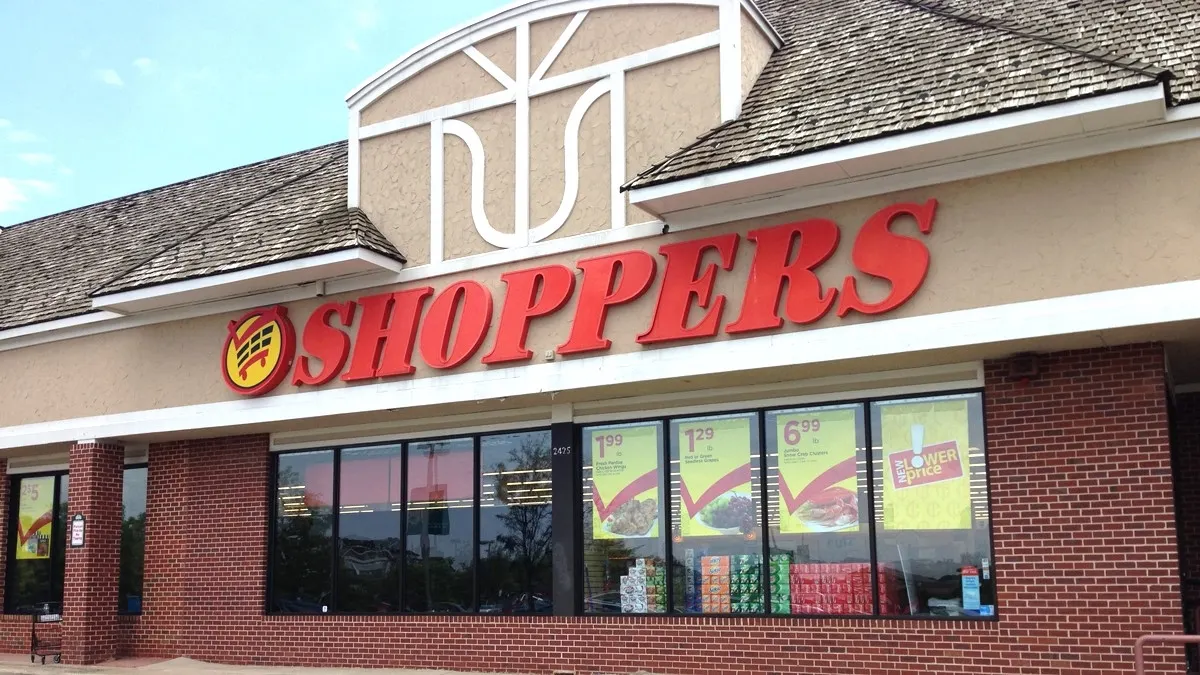This story is the second in a series of pieces looking at trends in the industry. Read about the 6 grocery trends to watch for 2020.
Despite the march toward e-commerce, the in-store experience remains a major focus for a lot of food retailers. Physical stores have continued to open in big numbers as companies invest in new formats, remodels and flagship locations.
This year promises to be just as busy, with markets across the U.S. expecting a plethora of grocery store openings, new developments and test concepts from food retailers. According to the experts, however, there are a few key locales to watch. From sunny Southern California to the state of New Jersey, here are the markets the grocery industry will want to keep an eye on in 2020.
Charlotte, North Carolina
There’s some serious competition afoot in the Queen City as incumbents like Food Lion and Harris Teeter face newcomers like Wegmans, Aldi and Lidl. Add Walmart and Publix to the mix and it’s going to be a big-name brawl, according to Mark Thompson, founder of real estate tracking site GroceryAnchored.com.
The state's population simply doesn't support the number of stores that will soon be on display, he said.
"There’s not enough migration to the Carolinas to support the growth of grocery stores going on in the state, and Charlotte is no exception," Thompson told Grocery Dive.
The big question is who will come out a winner. There are some great operators, Thompson said, but he’s talked to residents in the area that have as many as 10 or 11 grocery stores within three miles of their house.
"When I have nine choices for which to go, someone’s not winning that fight," he said.
When it comes to Lidl’s entrance into Charlotte, spokesperson Will Hardwood told Grocery Dive in an email that the company sees significant demand for its concept up and down the East Coast.
"You can see us getting more flexible with our real estate to continue our focus on convenience," he wrote. The discounter opened its first Charlotte store in December, and has plans for another in the southern part of the city. It also operates three stores in the suburbs.
In addition to Lidl’s market entrance, Amazon Fresh announced in December it would expand to the Charlotte market, while Harris Teeter will overhaul one of its existing stores in the city, open a new one and close another this year.
Washington, D.C.
The D.C. area is another market Thompson said he'll be watching this year. And he’s got his eye on one retailer in particular: Publix, which has steadily expanded northward from its home state of Florida in recent years and shows no signs of slowing down. The grocer currently has 1,230 units right now, with about 80 units in development or varying degrees of approval, according to Thompson.
"Publix has a store in Stafford, Virginia, which is two-thirds of the way to D.C. from Richmond,” he said. “You’ve got a situation where they’re on the doorstep."
And while Thompson said he doesn’t speak for Publix, he would be surprised if the grocer wasn’t looking at sites in the nation’s capital. "A Publix in D.C. would be fascinating to me," he said.
Nick Egelanian, president of retail real estate firm SiteWorks, agrees Washington is a market to monitor in 2020.
"Washington, of course, is always a market people care about because it’s very affluent," Egelanian told Grocery Dive. "It’s been a top market for Whole Foods forever, and it has a lot of big players competing in the same market. You’ve got Ahold with Giant, Kroger with Harris Teeter and you’ve got [Albertsons' Safeway banner.]"
Egelanian also said he’s seen more activity from Aldi and Lidl moving from the outskirts of the Washington metro area into more central locations.
"I’ve seen four to five Aldis take over spaces in the last few months. They’re chipping away at market share," he said.
Lidl has several sites in development around the Washington market, Wegmans will continue to expand in the city in the future, and Whole Foods has more stores planned for the area in addition to its new flagship store in Tysons Corner.
New Jersey
With Aldi and Lidl expanding and duking it out with each other in New Jersey, the Garden State will be one to watch in 2020.
Lidl’s first foray in the state was to buy property, according Marta Villa, senior vice president with commercial real estate firm JLL, and she told Grocery Dive they paid for some prime sites. Now they are open to leasing, which Villa said is a relatively new move for the discounter.
"Lidl and Aldi I would say are pretty much head-to-head in this market in terms of their expansion plans," she said.
Harwood said the discounter opened two stores in New Jersey in 2019, which makes six total in the state. "We haven’t forecast a specific number of new openings but expect to double our presence in the state [this] year," he said.
Aside from Lidl’s expansion there, longtime market leader ShopRite is still opening stores, Villa said. One just opened in November in South Brunswick.
"A good ShopRite in New Jersey will do between a million and a million-and-a-half a week. They’re powerhouses," Villa said, noting that some stores have expanded organic produce and prepared foods sections while some are still operating in a more traditional format.
New Jersey has long been a competitive grocery landscape because of its population density, said Villa. "New Jersey retail really performs well," she said. "It’s about density and … seeking the opportunity to reach the most customers possible," she said.
Villa said retailers in New Jersey often concentrate in major corridors to capture the most population and visibility. Wegmans, for example, only chooses sites on state highways, and Lidl has set up shop on state highway 22 and state highway 35, she said. A new Whole Foods is located on Route 46 in Parsippany.
"They’ve kind of come out of the interior grocery-anchored centers and they’re trying to have more of a regional play," Villa said.
Whole Foods has been "on a tear," according to Villa. In addition to its new Parsippany location, the natural grocer also opened stores in Commack, New York and Weehawken, New Jersey in 2019.
Trader Joe’s, which has more than a dozen locations in the state, has also announced new stores, though they don’t move fast, Villa said, while Sprouts has just retained a broker to help it make its entrance in the state, she said. Stew Leonard’s new location in Paramus had a strong opening in September, Villa said.
Southern California
Now that Amazon has revealed that the first location of its new grocery chain will be in Woodland Hills, an upscale suburb northwest of Los Angeles, there’s reason to watch the region in the coming year.
"There are a lot of eyes waiting to see what they’re going to introduce there and what’s going to make them better than all the grocery operators that have been at this a lot longer," Egelanian said.
Although the e-commerce giant has been secretive about the chain, more information is being released as it gets closer to opening day. For example, it will open in a former Toys 'R' Us space, and Amazon is planning additional sites in Studio City and Irvine, California, according to reports from The Wall Street Journal.
"We’re going to figure out Amazon in 2020."

Mark Thompson
GroceryAnchored.com
Thompson agrees, noting he’s waiting to see what Amazon’s traditional grocery store is all about and how many they intend to open.
"We’re going to figure out Amazon in 2020," Thompson said.
In addition, Grocery Outlet CEO Eric Lindberg previously told Grocery Dive Southern California was a market with a lot of untapped potential for his company, which has major expansion plans since going public last summer.
"We’re still a fairly small company in terms of store count on the West Coast, so we have a lot of expansion to do in Southern California plus existing infill," he said.
Whether it's stiffer competition in existing markets or new formats in untapped ones, developments in 2020 are on the horizon, if not already underway.







